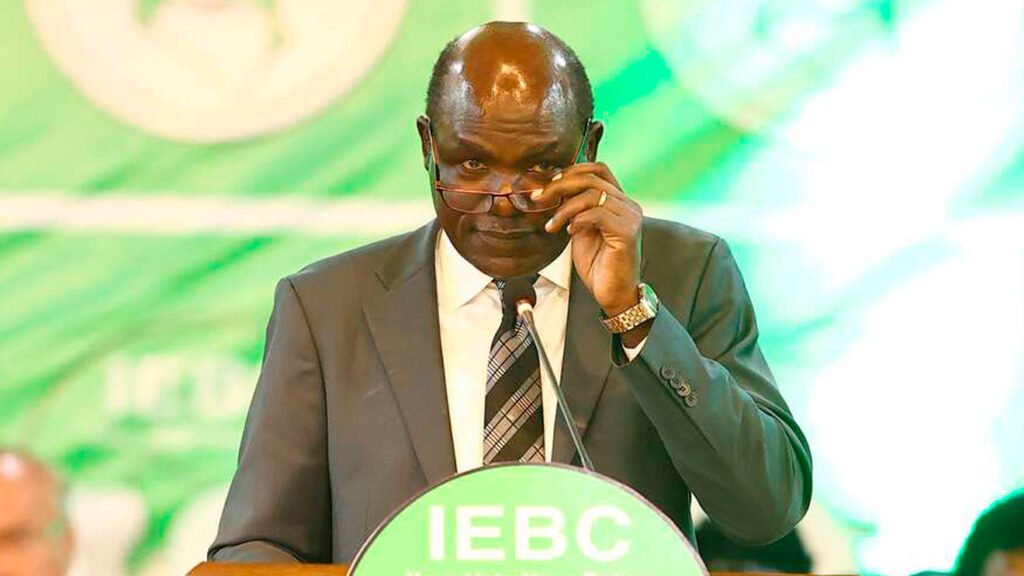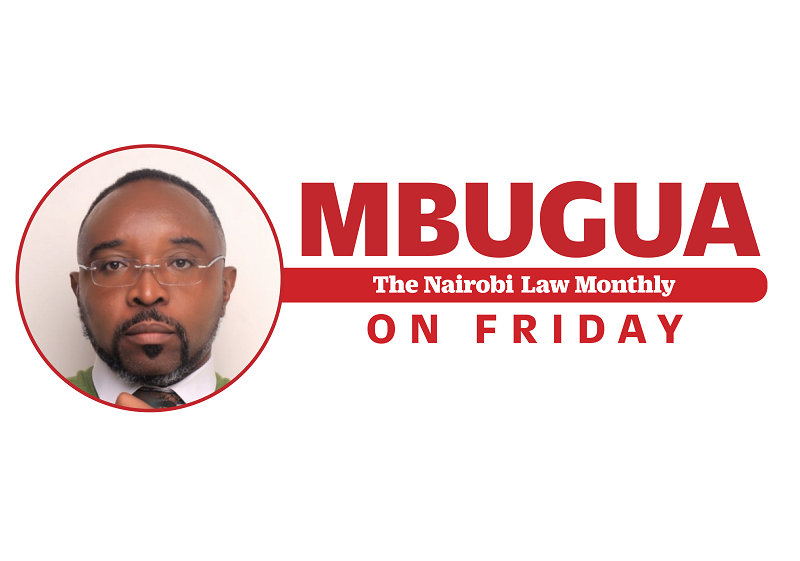Every man is mortal. Wafula Wanyonyi Chebukati was a man, and he died aged 63 in a Nairobi hospital on the night of February 20, about a day after social media had killed him.
Though he had left the office of chairman of the Independent Electoral and Boundaries Commission (IEBC) in January 2023, he breathed his last without laying eyes on his successor, no thanks to the long drawn process to select the next set of commissioners.
In a country where people in the public limelight are viewed through politically tinted lenses, it is no surprise that Chebukati was long consigned to the corner of infamy over his handling of the 2017 and 2022 presidential elections.
This is, in itself, a curiosity because voters generally agreed that all the other five elections to fill various elective seats were largely free and fair, but it was with the presidential election that they drew a line.
Indeed, the Supreme Court upheld this perception when its judges rejected the outcome of the first 2017 presidential election on grounds that the results were not verifiable. The court then outlined a raft of measures that it directed be complied with during a repeat election that was then held in October of the same year.
Unfortunately, some of the candidates who had petitioned for the election to be nullified opted to sit out of the repeat election, arguing that they could not expect a different result unless Chebukati was removed from office. He wasn’t. He oversaw the repeat election and declared Uhuru Kenyatta winner once again.
Given that the position of Chairman of the Independent Electoral and Boundaries Commission is a revolving door, Chebukati will go down in history as the only holder of that office to have successfully completed his term without being hounded out acrimoniously.

It would have been interesting – and Kenyans would have greatly benefitted – if Chebukati had opted to write his side of the story and share his thoughts about the precarious job that has incinerated the reputations of many.
The country is the worse off that he takes to the silent grave the many secrets and insights that came his way by virtue of holding the job that his predecessor, Ahmed Issack Hassan described in his memoir as being “Referee of a Dirty Ugly Game”.
It is that position that saw Chebukati vilified by people unhappy with the results he announced in 2017 to the point where they nicknamed him “Chebkadnezzar”, implying that he should have suffered the same fate as the biblical King Nebuchadnezzar, who spent eight years living like a wild beast, walking on all fours and nourished by shrubs.
In my view, Chebukati carried out his mandate to the best of his ability and in the face of humongous odds, including infighting within IEBC that led to commissioners being split right down the middle.
In the end, three of them had no option but to resign under a cloud of controversy, one was hounded out of office after a tribunal found her guilty of gross misconduct. Only Chebukati, together with two other commissioners, Boya Molu and Abdi Guliye, left office after their term expired.
In the 2022 election, which was a watershed moment in Kenyan politics, Chebukati steered the IEBC ship through particularly stormy waters against the background of a hotly contested race between Mr Raila Odinga, who had the blessings of the then President Uhuru Kenyatta and the State machinery on the one hand, and on the other, the then Deputy President William Ruto, who had been estranged from his boss.
The genesis of that estrangement lay, in part, in the “handshake” that President Kenyatta had with Mr Odinga in 2018, and as a result of which Dr Ruto was systematically edged out of the high table of power politics.
Against this background, Mr Chebukati found himself at the centre of powerful forces that were pulling in diametrically opposite directions as they fought to influence the Kenyatta succession. For instance, one of the party agents at the Bomas of Kenya, where the results were being announced as they streamed in, had instructions to destroy Form 34 C, the primary document used to tabulate presidential election results from all 290 constituencies.
On learning about the plot, which had the backing of some electoral commissioners, Chebukati made numerous photocopies of the document and attached Form 34B from all constituency tallying centres, thus thwarting the scheme. When the party agent saw this, he stormed into the plenary hall and declared the tallying centre “a crime scene”.
Later, just as Chebukati was emerging to read the final results, while holding the original Form 34C, chaos erupted in the plenary hall as some of the commissioners took off to address a press conference at the Serena Hotel. There, they dissociated themselves from the results that Chebukati was about to announce.
In the plenary hall, meanwhile, clergymen at the dais formed a human shield around Chebukati as the infamous Bomas Choir crooned number after number in high pitched voices as security officers restored order.
Bullets would have been fired were it not for the presence of diplomats who were sitting not too far from the choir. Police officers under the command of then Deputy Inspector-General Noor Gabow, had no choice but to use batons to quell the commotion.
Often, in his briefings on the floor of the plenary, Chebukati would chide the media saying: “The results are in the portal. Why are you not tallying?” He was giving journalists a back-handed compliment because in the 2017 election, the media had put him under immense pressure to release the results on ground that there had been inordinate delays.
With the results in the portal, no one could put pressure on IEBC to announce the winner. Any media house with the ability to tally would have called the results. In the end, only The Star did. All others waited for the official announcement.
And to a politician who had taken a private flight after bagging a governorship and arrived in Bomas to demand recounts in his new-found capacity as a presidential agent, Chebukati had this to say: “If I were you, I would do less shouting and more counting”. The politician was deflated and hardly rose to speak again thereafter.
There are many who believe that the 2022 presidential election was not conducted fairly and that the results did not reflect the will of the people. Based on this assumption, Chebukati’s critics vilified him and made him carry the skunk of a bad electoral manager, which he did until his dying day.
Sadly, on some occasions, when he went out for tea in high-end hotels, groups of youths would circle the venue like hounds, baying for his blood. After several such incidents, he eventually stopped going to hotels or appearing in public, fearing for his safety.
As the Outlaw country singer said,
Someday the sun will call me home
But for now I ride alone…
I ride alone, no trail behind
Just the shadows in the western sky
No regrets and no goodbyes
Only freedom by my side.
This, I want believe, was Chebukati’s song in his dying days.


